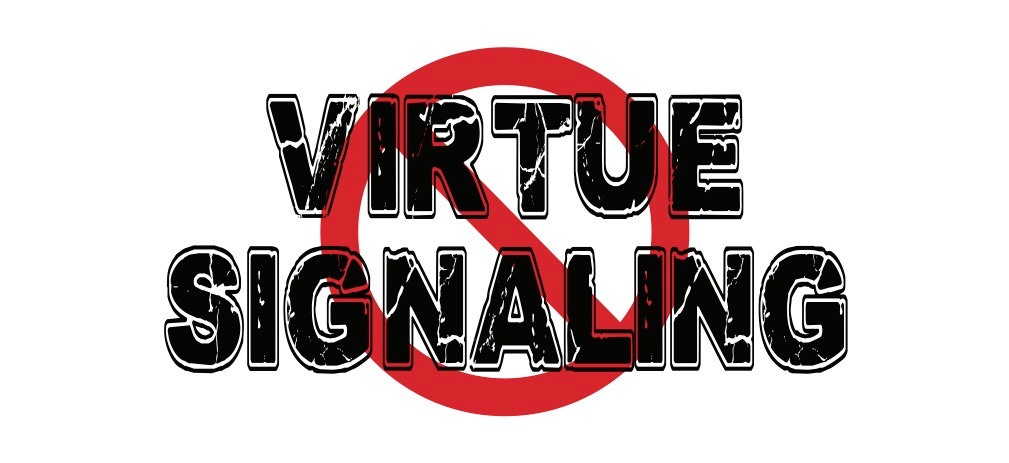E-Pluribus | June 4, 2021
Threats to democracy come from all directions, when doctors are muzzled, and the politicization cannot end well.
A round up of the latest and best writing and musings on the rise of illiberalism in the public discourse:
Jonah Goldberg: Threats to Democracy to the Left, Right, and Below
While it is easy to think of “threats to democracy” in terms of China, Russia, ISIS, and al Qaeda (and for older generations, the Soviet Union and even Nazi Germany), the more subtle and perhaps even more dangerous threats come from within. Jonah Goldberg embarks on a short history lesson, pointing out those on the left and right who valued power more that democratic principles, and even, at times, the American people themselves.
And, of course, [Woodrow] Wilson was openly hostile to the Constitution and the Bill of Rights. “No doubt,” he wrote, “a lot of nonsense has been talked about the inalienable rights of the individual, and a great deal that was mere vague sentiment and pleasing speculation has been put forward as fundamental principle.” He railed against “Fourth of July sentiments” and believed that our constitutional system of checks and balances had “proven mischievous just to the extent to which they have succeeded in establishing themselves as realities.”
Wilson’s record of state-sponsored violence, censorship, and persecution of political dissenters and “hyphenated Americans,” I would argue, flows quite clearly from all of this.
[…]
Over the weekend, Michael Flynn endorsed the idea of a military coup in the United States. It was abhorrent and grotesque and his denial that he meant what he said holds no water with me, and not just because I have eyes and ears and access to the video. He has a long record of advocating martial law on Trump’s behalf.
[…]
[E]very moment contains within it threats to democracy. They don’t always come from elites on the right or left. Sometimes—often—they come from below, i.e. from the people themselves. The American Founders and the republicans of Rome alike understood this. That’s why I place the blame for this moment on populism, not the writings of a handful of conservative intellectuals whom the people applauding Michael Flynn and Sidney Powell have never heard of.
Read it all at The Dispatch.
Katie Herzog: What Happens When Doctors Can't Tell the Truth?
Bari Weiss is continuing her practice of turning over her Common Sense Substack to other writers. Katie Herzog is the latest with a long piece about the pressures physicians and others in the medical field are under to conform to politically acceptable ideas and practices.
“Wokeness feels like an existential threat,” a doctor from the Northwest said. “In health care, innovation depends on open, objective inquiry into complex problems, but that’s now undermined by this simplistic and racialized worldview where racism is seen as the cause of all disparities, despite robust data showing it’s not that simple.”
“Whole research areas are off-limits,” he said, adding that some of what is being published in the nation’s top journals is “shoddy as hell.”
Here, he was referring in part to a study published last year in the Proceedings Of The National Academy Of Sciences. The study was covered all over the news, with headlines like “Black Newborns More Likely to Die When Looked After by White Doctors” (CNN), “The Lack of Black Doctors is Killing Black Babies” (Fortune), and “Black Babies More Likely to Survive when Cared for by Black Doctors” (The Guardian).
Despite these breathless headlines, the study was so methodologically flawed that, according to several of the doctors I spoke with, it’s impossible to extrapolate any conclusions about how the race of the treating doctor impacts patient outcomes at all. And yet very few people were willing to publicly criticize it. As Vinay Prasad, a clinician and a professor at the University of California San Francisco, put it on Twitter: “I am aware of dozens of people who agree with my assessment of this paper and are scared to comment.”
[…]
At the same time that the bar appears to be lower for articles and studies that push an anti-racist agenda, the consequences for questioning or criticizing that agenda can be high.
Just ask Norman Wang. Last year, the University of Pittsburgh cardiologist was demoted by his department after he published a paper in the Journal of the American Heart Association (JAHA) analyzing and criticizing diversity initiatives in cardiology. Looking at 50 years of data, Wang argued that affirmative action and other diversity initiatives have failed to both meaningfully increase the percentage of black and Hispanic clinicians in his field or to improve patient outcomes. Rather than admitting, hiring and promoting clinicians based on their race, he argued for race-neutral policies in medicine.
“Long-term academic solutions and excellence should not be sacrificed for short-term demographic optics,” Wang wrote. “Ultimately, all who aspire to a profession in medicine and cardiology must be assessed as individuals on the basis of their personal merits, not their racial and ethnic identities.”
At first, there was little response. But four months after it was published, screenshots of the paper began circulating on Twitter and others in the field began accusing Wang of racism. Sharonne Hayes, a cardiologist at the Mayo Clinic, implored colleagues to “rise up.” “The fact that this is published in ‘our’ journal should both enrage & activate all of us,” she wrote, adding the hashtag #RetractRacists.
Read it all here.
Christos A. Makridis: Politicization Isn’t Sustainable
Trying to read the zeitgeist and appear sensitive and responsive to it is nothing new for corporations, but a new study suggests it might be less than beneficial in the long run. Christos Makridis, co-author of the study, says that trying to placate the loudest critics with “virtue-signaling” is likely distracting companies from their fundamental role in the marketplace.
As the definition of “social responsibility” continues to expand, the corporate world is undergoing an identity crisis. Executives regularly come under fire from subordinates or vocal activists who demand that their companies wade into politics. More often than not, these accusations come from well-organized but small-in-number political activists, rather than regular customers or the highest-performing employees.
While virtue-signaling strategies might create some short-term benefits—attracting activist-minded workers, appeasing social media mobs—these decisions come at a cost. As the media have politicized more content, polarization has increased nationally. Meantime, companies that deviate from their central purpose run the risk of simultaneously overstepping and failing to deliver on their core responsibility: meeting marketplace demand. Politicization threatens not only society but also the long-term future of organizations involved in it.
Read the whole thing.
Around Twitter
PEN America on the 32nd anniversary of the Tiananmen Square Massacre:
Abigail Shrier on an attempt to remove her book from a Halifax library:
Jonathan Rauch on the Facebook Oversight Board:
The Foundation Against Intolerance & Racism gets right to the point:
Rejecting tribalism shouldn’t be controversial, but apparently using the word is:















